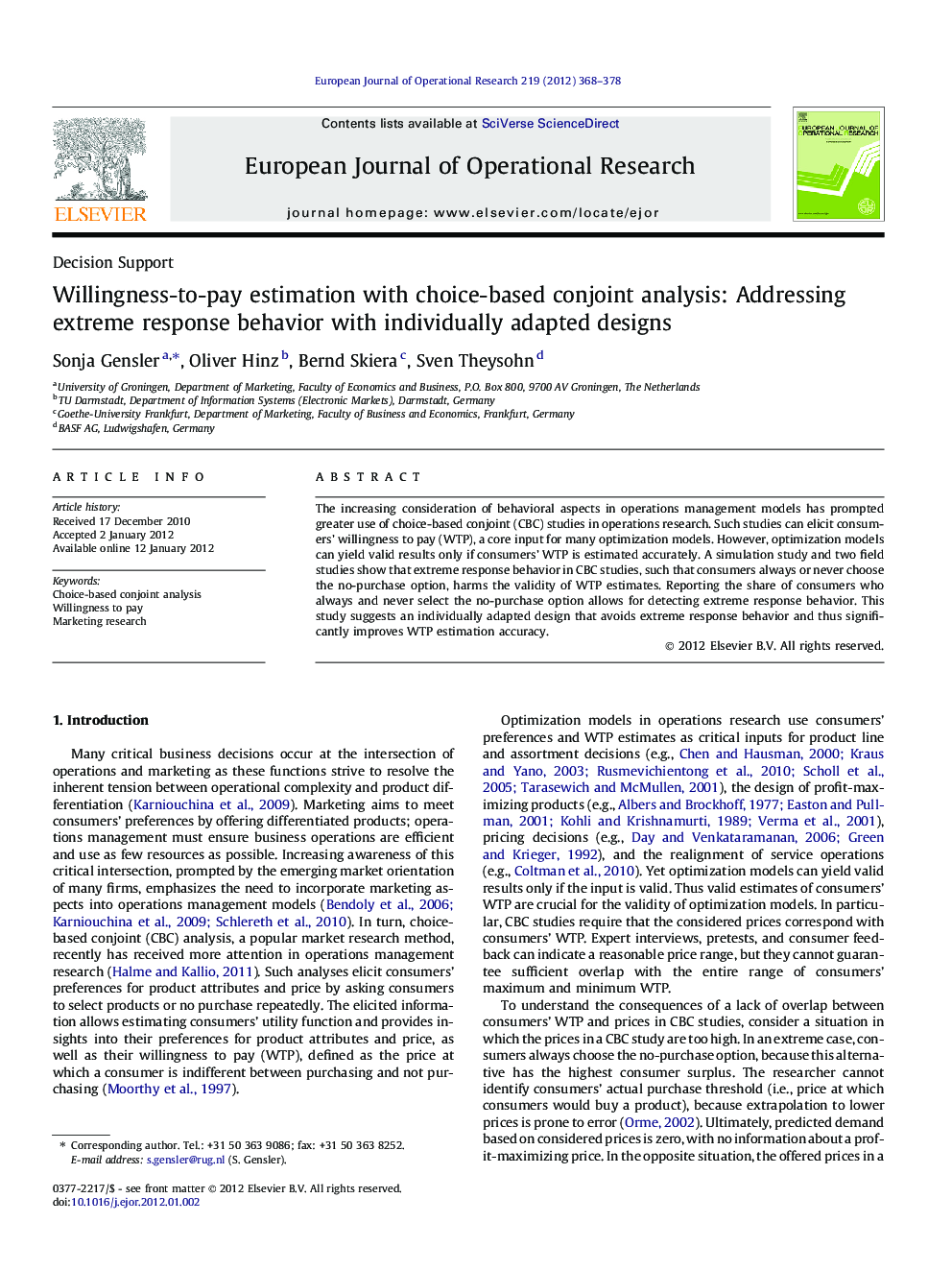| Article ID | Journal | Published Year | Pages | File Type |
|---|---|---|---|---|
| 480455 | European Journal of Operational Research | 2012 | 11 Pages |
The increasing consideration of behavioral aspects in operations management models has prompted greater use of choice-based conjoint (CBC) studies in operations research. Such studies can elicit consumers’ willingness to pay (WTP), a core input for many optimization models. However, optimization models can yield valid results only if consumers’ WTP is estimated accurately. A simulation study and two field studies show that extreme response behavior in CBC studies, such that consumers always or never choose the no-purchase option, harms the validity of WTP estimates. Reporting the share of consumers who always and never select the no-purchase option allows for detecting extreme response behavior. This study suggests an individually adapted design that avoids extreme response behavior and thus significantly improves WTP estimation accuracy.
► We show that extreme response behavior in CBC studies harms validity of WTP estimates. ► Extreme response behavior occurs if consumers always/never select none-option. ► We suggest an individually adapted CBC design that avoids extreme response behavior. ► We show that an IACBC design significantly improves WTP estimation accuracy.
